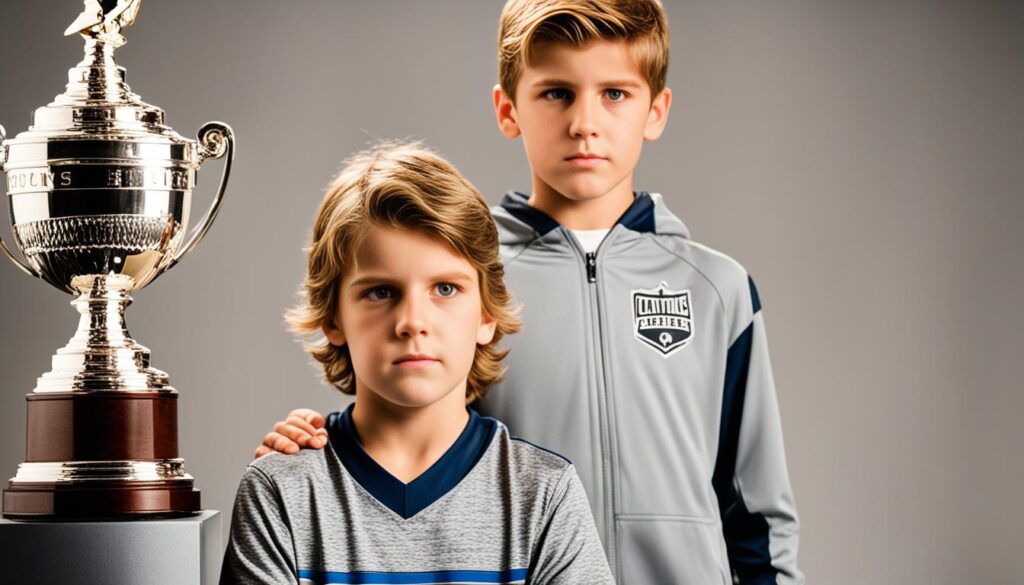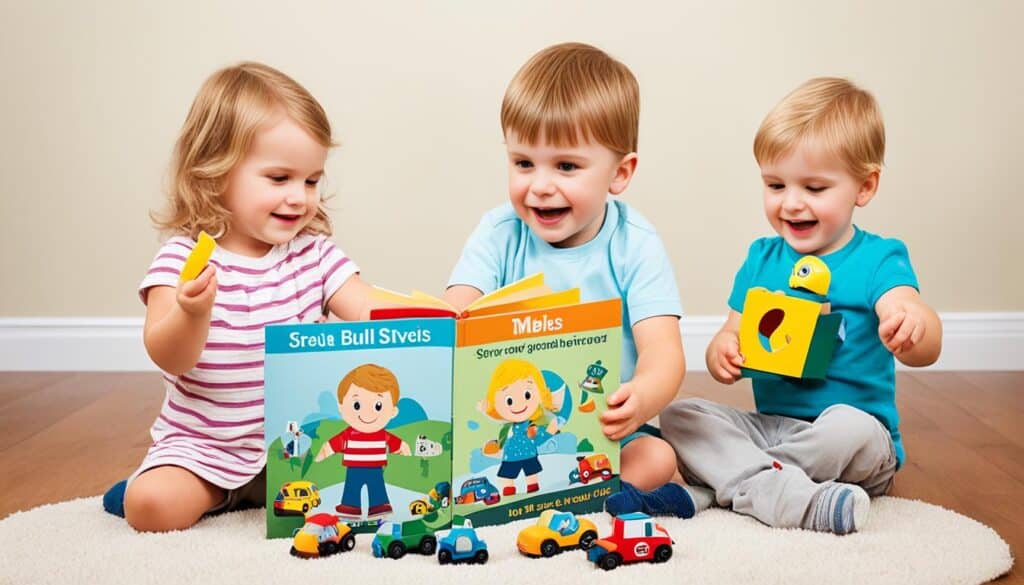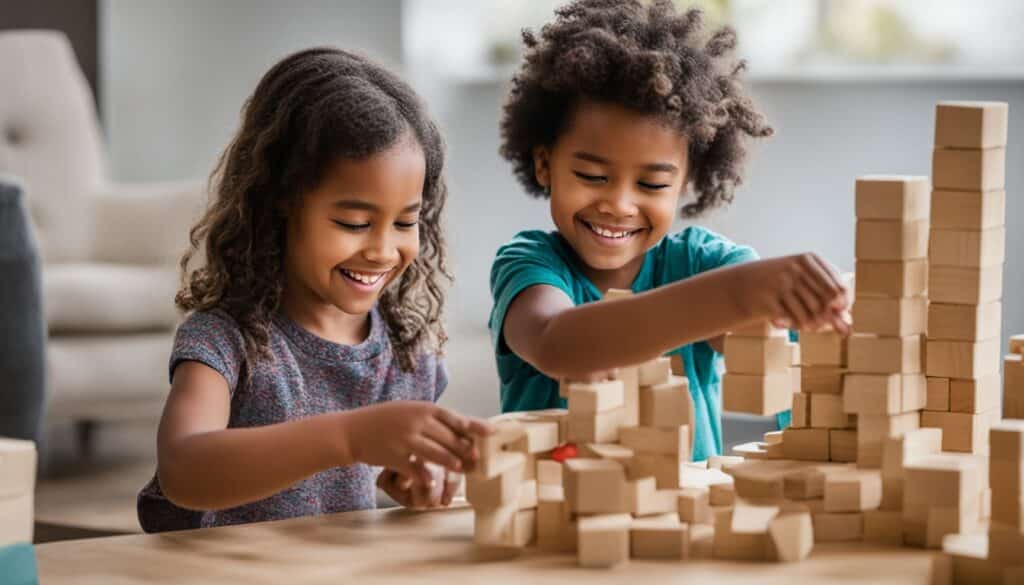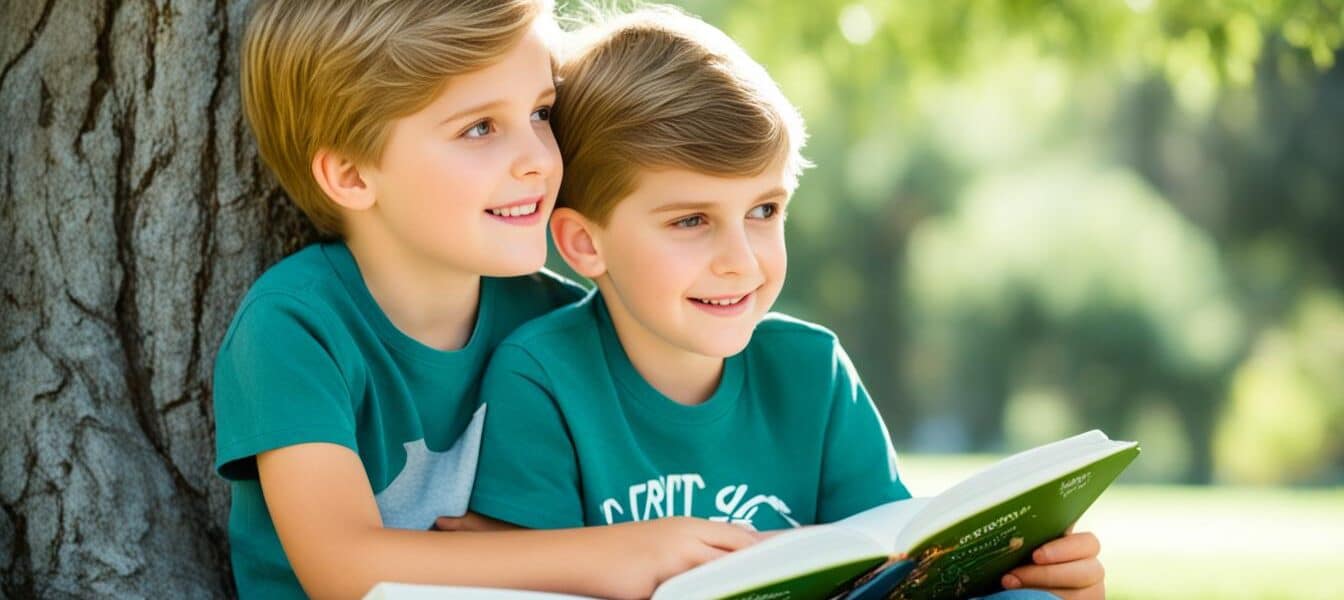Sibling Bonds: Nurturing Love And Connection Between Brothers And Sisters Relationship
Our six-year-old daughter is laying on the couch, her face flushed. She’s sick with a high fever, trying to rest. Her four-year-old brother wants to make her ‘feel better’. He carries her stuffed animals and puts them around her head. The sister’s fever is so high that she still snores as her older sibling shoves a thermometer under her arm. Then, with urgency, he tells their mom about the fever. This act of caring shows that siblings truly love each other, even if they fight and compete.
Siblings influence each other in many ways. They help each other grow emotionally and socially throughout life. It’s important to foster their relationship. By doing this, you help them build a strong, supportive bond that will last forever.
Key Takeaways : Brothers And Sisters Relationship
- Siblings share a unique and lifelong bond that shapes their development and social-emotional skills.
- Nurturing the sibling relationship is crucial for building close, supportive connections that last a lifetime.
- Siblings often demonstrate their care and concern for one another, even in the midst of conflict and rivalry.
- Understanding the dynamics of sibling relationships, such as birth order and age gaps, can help parents foster healthy connections.
- Promoting collaboration, individuality, and conflict resolution skills can strengthen the sibling bond.
The Importance of Sibling Relationships
Sibling bonds are crucial, influencing our lives deeply. They affect our character, how we solve problems, and relate to others. When siblings share a strong and healthy emotional connection, they often feel happier about life.
Lifelong Impact on Development
Siblings shape who we are, playing a big part in our growth. They influence our wellbeing and our ability to have good relationships as adults. Often, siblings are our first friends, teaching us essential social and emotional skills.
Foundation for Social and Emotional Skills
Brothers and sisters are key in our learning of how to get along with others. They help us handle conflicts, understand each other’s feelings, and talk well. The bond we share with siblings helps us build skills for healthy relationships, at home and beyond.
Understanding Sibling Dynamics

Sibling dynamics are complex and affected by many things like where you were born in the family and gender. These factors shape how siblings act, develop their character, and handle their bond.
Birth Order and Its Influence
Studies show your place in the family affects your traits as you grow. First-borns often become careful and like things just right, often they lead. Second-borns could be good at bringing peace and like to do things on their own. Third-borns tend to be outgoing but might try to control others.
Age Gaps and Gender Differences
Age gaps and which genders make up a sibling group are also key. Older siblings may become like second parents, while the youngest might want more attention. These roles can shape how siblings talk to each other, work out disagreements, and grow their friendship.
Family Dynamics and Parental Role
How the whole family works together and how parents raise their kids is critical too. If parents seem to favor one child or aren’t clear on rules, kids might not get along. It is important for parents to understand these issues to help their children get along better and create a peaceful home.
Sibling Rivalry: Causes and Challenges

Sibling rivalry is very common in families. It happens for many reasons. Two big ones are jealousy and competition for parental attention. Kids may think their parents favor one over the other. This can make them feel they are treated less fairly.
Children’s differences in what they like and do can also make rivalry worse. They might strive to get noticed and be seen as important. This can make them compete more with their siblings.
Sibling rivalry shows itself in different ways. This could be through fights, feeling upset, or even not wanting to be around their sibling. It’s normal for brothers and sisters to not always get along. But, finding out why they argue and helping them deal with it is key.
Parents can play a big role in helping their kids get along better. They can learn to spot what makes their children upset with each other. This understanding can lead to better solutions for dealing with rivalry. Helping kids learn how to cope can make a big difference.
Jealousy and Competition for Attention
Siblings might get jealous if they think their parents like one more than the other. This feeling of jealousy often leads to a desire to be better than the sibling. They hope this will make their parents notice and approve of them more.
Perceived Favoritism and Unfairness
Feeling that parents are unfair or show favoritism towards one sibling can be really hard to deal with. It can cause anger and sadness in the siblings who feel left out. These feelings of not being treated fairly can bring about more conflict between them.
Brothers And Sisters Relationship: Nurturing Love and Connection

Nurturing the love and connection between brothers and sisters takes work. This includes building strong sibling bonds. It’s done through spending quality family time and doing things together. This allows siblings to understand and appreciate each other more.
Quality Family Time and Shared Experiences
Creating shared experiences is key. Whether it’s family game night or a weekend trip, these moments help build memories. They also increase empathy and sibling connection between siblings.
Open Communication and Active Listening
Good open communication and active listening are vital. When siblings talk and listen to each other, they grow. They’re better prepared to handle disagreements and find solutions. This helps in forming strong, lasting sibling relationships.
Celebrating Individuality and Embracing Differences

Sibling relationships are special because each child has their own likes, skills, and personalities. It’s key to value and support what makes each child unique. This promotes good relationships between siblings. They are less likely to compare or fight when they feel this way.
Brothers and sisters should cheer for what makes each other stand out. This makes them closer and helps them appreciate what’s special about the other. Parents play a big role in this by showing that different talents and interests are good. This fosters deep respect among siblings for each other’s uniqueness.
| Sibling Characteristic | Importance for Healthy Relationships |
|---|---|
| Individuality | Allows siblings to embrace their unique strengths and talents, reducing harmful comparisons. |
| Differences | Encourages siblings to learn from and appreciate each other’s diverse perspectives and experiences. |
| Personality Traits | Equips siblings with the understanding and empathy to navigate their unique dynamics. |
| Shared Interests | Provides a foundation for collaborative activities and strengthens the sibling bond. |
| Family Support | Fosters an environment where siblings feel secure, valued, and encouraged to embrace their differences. |
Fostering Teamwork and Collaboration

Getting siblings to work together can really improve their bond. Doing things like team sports, group projects, or chores at home can make a big difference. These activities help them see the value in each other’s efforts. They learn to solve problems and talk through issues, which are crucial skills for good relationships later in life.
Cooperative Activities and Projects
When siblings team up, they build trust and learn to share thoughts and ideas. This is key in solving challenges as a team. They could, for example, work on a fun project at home or help each other with daily tasks. Such experiences show them how to appreciate each other’s skills and work together to achieve common goals.
They might decide to create something or take on a fun family challenge. By doing this, they come to see the strengths each one brings. They realize how working together benefits everyone.
Developing Problem-Solving Skills
Collaborative activities teach siblings how to overcome difficulties. Listening, compromising, and agreeing on solutions are part of the learning process. These skills not only resolve current issues but also prepare them for future disputes. Parents’ support in promoting teamwork and problem-solving helps children form strong, lifelong connections with each other.
Managing Sibling Conflict and Rivalry

Sibling rivalry is common and can be managed well by parents. The key is to treat each child fairly and not play favorites. By recognizing the special abilities and needs of each child, you create harmony at home. Siblings feel acknowledged and won’t compete as much.
Avoiding Comparisons and Favoritism
Comparing siblings or favoring one over the other can lead to jealousy. It’s best to applaud what makes each child unique. Avoiding comparisons helps children feel good about themselves. They won’t feel the need to compete unfairly.
Teaching Conflict Resolution Techniques
Parents can help their kids resolve conflicts peacefully. They should teach listening, understanding, and finding middle ground. Showing children how to solve fights can turn struggles into chances to learn. This also makes their bond stronger.
When siblings know how to talk and solve issues together, they avoid big fights. Instead, they build a lasting and strong connection.
Sibling Support and Lifelong Bonds

Brothers and sisters often have the longest relationships we know. It’s key to keep these ties close for lifelong help and friendship. As they both journey from children to grown-ups, it’s vital to respect each other’s point of view and past.
Mutual Understanding and Respect
Siblings get close by sharing family traditions and making shared memories. This helps them have each other’s back and feel like they truly belong. With these basic things, brothers and sisters can make strong bonds that bring them comfort and shared joys through the years.
Shared Memories and Traditions
The bonds from childhood grow into powerful connections that last a lifetime. These adult sibling relationships can really improve the quality of siblings’ lives even as they grow older. Through it all, they support each other, taking strength from the ties they’ve built together.
The Role of Parents in Nurturing Sibling Relationships

Parents are key in how well siblings get along. They show the importance of good, respectful relationships by their own example. They do this by modeling healthy, respectful family relationship. This helps their children learn how to get along relationships with parents.
Encouraging the development of each child’s unique interests and talents, while also promoting their independence, makes sibling bonds stronger third rail of family. It helps siblings see that being different is fine. They learn to avoid comparing themselves in bad ways.
Modeling Healthy Relationships
When parents show positive communication, conflict resolution, and mutual support, they set a good pattern. Their kids will usually follow these good communication habits. This makes children more likely to get along toward one well with their siblings.
Encouraging Individuality and Independence
Parents should avoid comparing siblings or showing favoritism. Instead, they should praise the unique personalities, strengths, and interests of each child. By doing this, everyone learns to appreciate what makes them different. This cuts down on fighting and jealousy.
It is also important for parents to teach their kids how to deal with arguments. This means showing them how to work out problems in a peaceful way. With guidance and support, parents can make their home a place where siblings feel safe, valued, and encouraged to be close forever.
Overcoming Challenges and Fostering Resilience

Nurturing sibling relationships brings joy and support between sisters and brothers. Yet, some may face challenges like bullying or abuse quality of sibling. It’s key for parents to step in, protect their child, and teach healthy relationships with siblings handle these problems. They should help siblings report learn how to solve conflicts together close relationships.
Addressing Sibling Bullying or Abuse
Sibling bullying or abuse can harm the family and the individuals’ well-being. Parents need to act fast, setting limits and ensuring the victim’s safety found that sibling. This might include separating the siblings, teaching better ways to talk, and positive relationships encouraging empathy and taking responsibility.
Seeking Professional Support When Needed
If conflict is severe and the family can’t solve it, professional support is a good choice. A therapist or counselor can assist. sibling relations provide strategies to cope and help families heal. With professional help, families can grow stronger and children can improve their resilience. This strengthens the siblings’ relationship intervention in childhood and adolescence brother or sister.
Also Read : United We Thrive: Inspiring Tales Of Relationship Success
Conclusion
Sibling relationships are special and shape who we are. They help us grow, learn social skills, and be happy. By working on sibling dynamics, we can make sure brothers and sisters are close. This leads to a life full of love, help, and respect.
Parents play a big part by supporting their children’s unique traits. They encourage working together and giving advice. This helps kids handle sibling relationships well, making the whole family stronger. Family becomes a support system that lasts a lifetime.
Focusing on sibling bonds and family ties helps kids learn important life skills. These skills stay with them even when parents aren’t around. It shows how strong family is and the importance of sibling love.
FAQs
Q: What is the importance of sibling relationships in childhood and adolescence?
A: Sibling relationships play a crucial role in shaping a child’s development, providing a unique bond that influences social skills, self-esteem, and emotional well-being.
Q: How do positive sibling relationships affect family dynamics?
A: Positive sibling relationships contribute to a harmonious family environment by promoting cooperation, communication, and mutual support among family members.
Q: What does research suggest about the effects of sibling interactions on individuals?
A: Research suggests that positive sibling interactions can lead to improved social competence, conflict resolution skills, and overall well-being in both childhood and adulthood.
Q: How can parents enhance sibling relationships between brothers and sisters?
A: Parents can support positive sibling relationships by encouraging cooperation, fostering empathy, and mediating conflicts constructively within the family.
Q: What role do siblings play in influencing each other’s behavior and attitudes?
A: Siblings serve as important role models for each other, influencing behavior, attitudes, values, and decision-making throughout childhood and adolescence.
Q: What are the significant factors that contribute to close sibling relationships?
A: Factors such as warmth, emotional support, shared experiences, and effective communication contribute to the development of close sibling relationships with lasting bonds.
Q: What does the research reveal about the impact of sibling relationships on peer relationships?
A: Research indicates that positive sibling relationships are associated with better peer relationships, as siblings learn important social skills and interpersonal dynamics through their interactions with each other.
